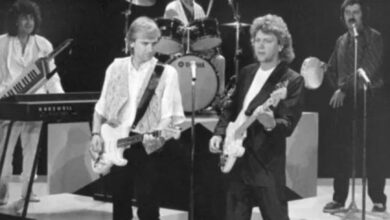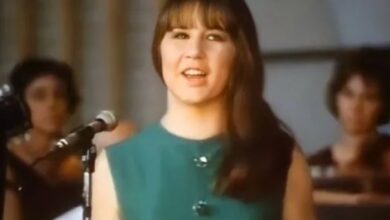Elvis Performs This Song With All His Emotions, Says Priscilla
Elvis Presley, often referred to as the “King of Rock and Roll,” needs little introduction. Born on January 8, 1935, in Tupelo, Mississippi, Elvis rose to fame in the mid-1950s with his unique blend of rockabilly, rhythm and blues, and gospel music. His charismatic stage presence, sultry voice, and groundbreaking performances quickly propelled him to superstardom, earning him a legion of devoted fans worldwide.
By the late 1960s, Elvis’s career had experienced a resurgence, thanks in part to his critically acclaimed television special, simply known as the “68 Comeback Special.” This special, which aired on NBC in December 1968, marked a pivotal moment in Elvis’s career, showcasing his musical versatility and reaffirming his status as one of the most iconic entertainers of all time.
One of the standout moments of the “68 Comeback Special” was Elvis’s performance of “If I Can Dream.” Written by Walter Earl Brown, the song was a powerful anthem of hope and unity during a tumultuous period in American history. Against the backdrop of social unrest and political upheaval, Elvis’s rendition of “If I Can Dream” struck a chord with audiences, offering a message of optimism and resilience in the face of adversity.
Dressed in all black and backed by a full orchestra and choir, Elvis took to the stage with a sense of purpose and conviction. His vocals were impassioned and heartfelt as he delivered the stirring lyrics, capturing the zeitgeist of the era with remarkable poignancy. “If I can dream of a better land, where all my brothers walk hand in hand, tell me why can’t my dream come true?” he sang, his voice trembling with emotion.
The orchestral arrangement added a sense of grandeur to the performance, while the choir’s harmonies underscored the song’s message of unity and solidarity. It was a moment of sheer musical brilliance, with Elvis’s commanding presence and magnetic charisma holding the audience spellbound from start to finish.
Beyond its artistic excellence, Elvis’s performance of “If I Can Dream” held significant cultural significance. At a time when America was deeply divided along racial, social, and political lines, Elvis used his platform to advocate for peace, equality, and understanding. His impassioned delivery of the song served as a rallying cry for unity and hope, resonating with audiences of all backgrounds and beliefs.
In the decades since its debut, Elvis’s performance of “If I Can Dream” has become a defining moment in his storied career. It stands as a testament to his enduring legacy as a cultural icon and a symbol of hope and inspiration for generations to come. Elvis may have left the building, but his music continues to transcend time and space, touching the hearts and souls of millions around the world.





